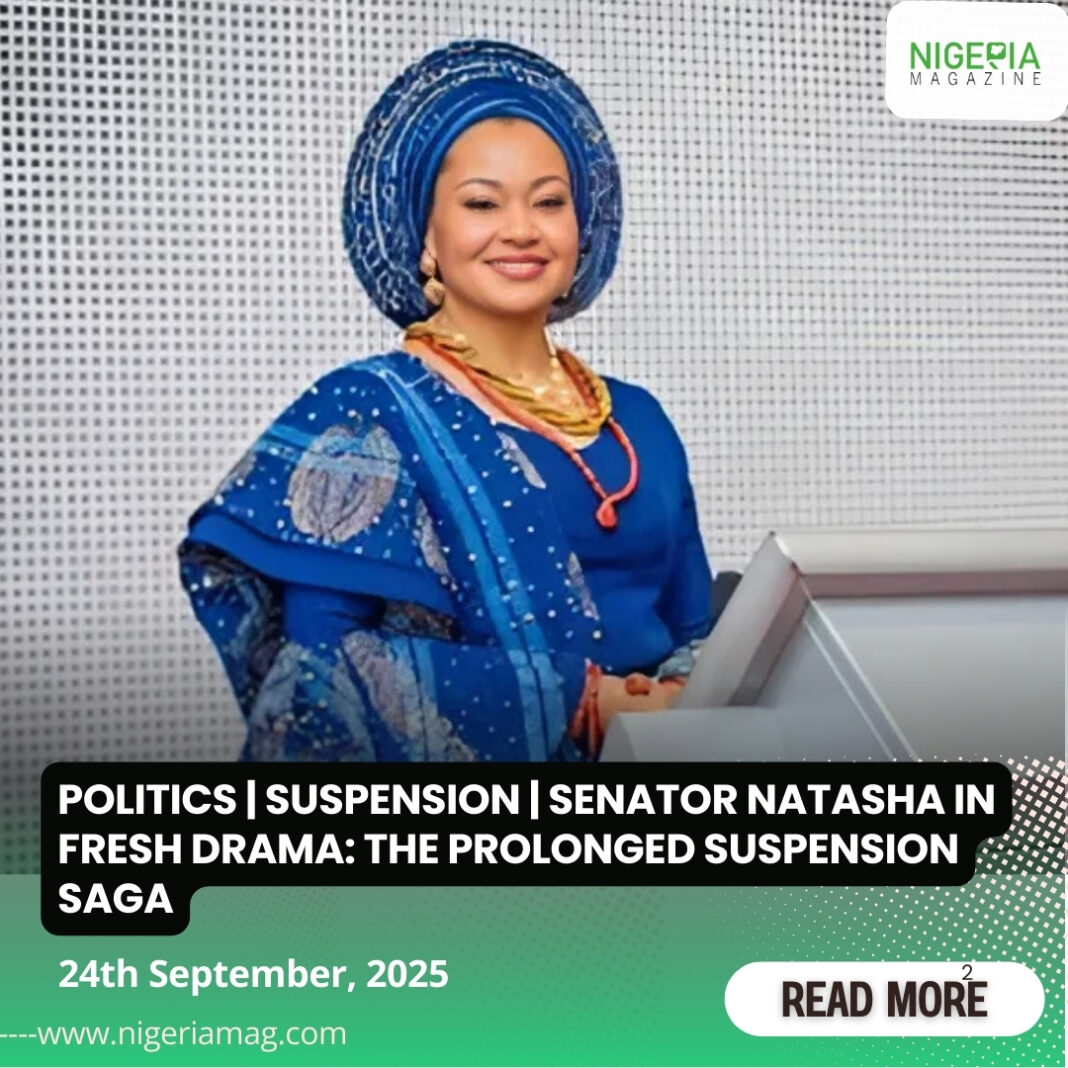The political drama surrounding Senator Natasha has taken yet another twist, as her prolonged suspension continues to dominate national discourse and stir heated debate across party lines. What began as a disciplinary action has now morphed into a protracted saga of legal battles, political maneuvering, and questions about democratic accountability.
Background to the Suspension
Senator Natasha, a firebrand lawmaker known for her outspoken views and confrontational style, was suspended from parliamentary sittings late last year after a heated clash with senior party leadership. The official justification cited “gross misconduct” and “breach of legislative decorum,” but critics argue the suspension was more about silencing dissent than maintaining order.
Her suspension, initially set for a fixed term, has since dragged on far longer than anticipated. Attempts to reinstate her have been blocked repeatedly, either through procedural technicalities or political stonewalling. This has turned her absence into one of the most polarising stories in the country’s legislative history.
Fresh Drama Unfolds
In recent weeks, the drama has escalated. Natasha’s legal team filed new petitions challenging the constitutional basis of the suspension, describing it as a violation of her mandate and the rights of the electorate who voted her into office. Civil society groups have rallied behind her, demanding accountability and transparency from parliamentary leadership.
At the same time, her opponents within the Senate argue that lifting the suspension without conditions would undermine institutional authority. They maintain that Natasha’s behaviour—characterised by public outbursts, defiance of party directives, and inflammatory rhetoric—left them with no choice but to act decisively.
Political Undercurrents
Observers point out that the suspension cannot be understood in isolation. Natasha has long been viewed as a rising political figure who challenges entrenched hierarchies. Her populist messaging resonates strongly with young voters and grassroots activists, creating unease within established power structures.
By sidelining her, critics allege, the ruling bloc hopes to weaken her political momentum ahead of upcoming regional elections. Yet the move may have backfired: rather than fading into obscurity, Natasha has remained a headline figure, her “silencing” turning into a rallying cry for supporters who see her as a victim of political persecution.

Legal and Constitutional Questions
Central to the unfolding drama are constitutional concerns. Legal analysts are divided on whether the Senate has the authority to impose indefinite suspensions without clear timelines or review mechanisms. Some argue that prolonged suspensions effectively disenfranchise constituents, undermining the democratic principle of representation.
Others contend that legislative bodies must retain the power to discipline their members, especially when conduct threatens institutional integrity. The matter may ultimately require judicial intervention to clarify the limits of parliamentary privilege and individual rights.
Civil Society and Public Reaction
Public reaction to Natasha’s suspension remains deeply polarised. Her supporters flood social media platforms with the hashtag #BringBackNatasha, framing her as a courageous whistleblower standing up against elite interests. Protest marches in several cities have drawn sizable crowds, especially among youth movements and women’s advocacy groups who see her as a symbol of resilience.
On the other hand, detractors criticise her as reckless and self-serving, arguing that her behavior undermines constructive governance. They warn that reinstating her without consequences would embolden disruptive politics and erode parliamentary discipline.
International Attention
The controversy has not gone unnoticed abroad. Human rights organisations and some foreign parliamentary bodies have expressed concern, urging respect for democratic freedoms. However, government allies dismiss such interventions as external meddling, insisting that Natasha’s case is a domestic disciplinary matter.
What Lies Ahead
The coming weeks will be critical. Natasha’s legal petitions are expected to come up for hearing, potentially setting a landmark precedent for legislative discipline versus constitutional rights. Meanwhile, political negotiations behind the scenes continue, with some suggesting a conditional reinstatement deal may be in the works—one that could require Natasha to issue a formal apology or commit to revised codes of conduct.
Whatever the outcome, the prolonged suspension has already reshaped the political landscape. Natasha has become a lightning rod for debates about freedom of expression, institutional authority, and the balance of power in modern politics.
Analysis
At its core, the saga underscores the fragility of democratic systems when confronted with internal dissent. While institutions must protect themselves against disruptive conduct, they must also guard against sliding into authoritarian silencing of opposition voices. Natasha’s suspension raises uncomfortable questions: Where should the line be drawn? Who gets to decide, and under what checks and balances?
For Natasha, the prolonged suspension is both a setback and a paradoxical gift. It has kept her physically out of parliament but politically in the spotlight. For her party and the Senate leadership, it is a lingering headache that refuses to fade, threatening to alienate segments of the electorate while exposing vulnerabilities in the institution’s governance.
Senator Natasha’s prolonged suspension is no longer a mere disciplinary action—it has become a national political drama with implications far beyond one lawmaker’s fate. Whether she is reinstated, forced to apologise, or permanently sidelined, the episode will leave lasting lessons on how democratic institutions manage dissent, discipline, and representation.
One thing is clear: Natasha’s name will remain etched in political conversations for months to come, her suspension transforming her into both a cautionary tale and a rallying symbol in the evolving theatre of national politics.


